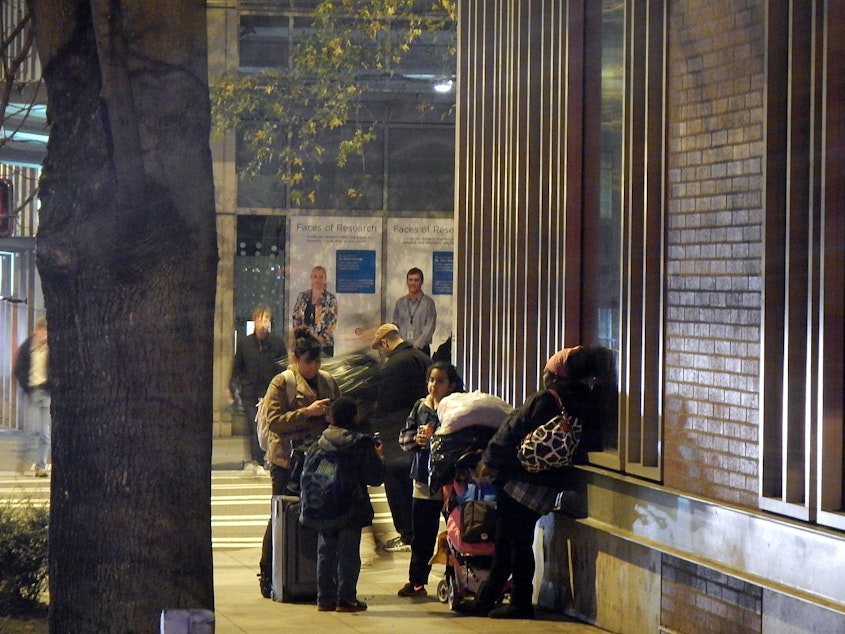Seattle Homeless Advocate: 'We Absolutely Can End This Problem'

Bill Hobson’s radical philosophy was born when he met a 24-year-old woman who was schizophrenic, HIV positive and addicted to crack. And she was pregnant.
It was early in Hobson’s 31-year tenure at the Downtown Emergency Services Center.
“I had already had this idea that the DESC needed to do housing because the solution to homelessness is a home,” Hobson said. “If all we did was get that person housing and we didn't do anything to help or manage the challenges in her life, the likelihood of her being successful is pretty remote. And it caused me to start thinking about supported housing.”
The result was “housing first” – the idea that you provide housing then deal with pressing mental or physical issues. Housing first, radical for its time, is now standard, he said.
It’s what he is most proud of as he retired as the center’s executive director at age 76.
Sponsored
It was sort of an accidental career. In 1984, Hobson was a college professor when he decided he needed a change. He took a job at the homeless shelter in downtown Seattle that worked with the people hardest to serve. He was executive director within four years.
Housing first, he said, isn’t hard to understand.
“It is sort of predicated on a belief that if you eliminate the chaos of homelessness from a person's life, if you get rid of all the craziness that homeless people have to endure when they're living on the streets or in shelters, where they're almost monomaniacally preoccupied with survival, if you eliminate that … it provides a more stable foundation for people to begin to address their challenges and make serious changes in their lives,” he said.
Still, all these years later, there are even more homeless people on Seattle’s streets. Hobson has no patience for the belief that homelessness will always be with us.
“I'm old enough to know that we haven't always had a significant homeless problem … with the right sort of attention from the public, principally, we absolutely can end this problem,” he said. “It's going to cost a lot of money -- tons more than we're currently spending in Seattle or anywhere else in the country. I fear if we don't do that, we're going to see a continued increase in the number of homeless people on the street.”
Sponsored
And that means a choice for people in Seattle and King County, he said.
“Do you just simply want to accept that homelessness is here?” he said. “Then stop complaining about seeing homeless people doing whatever they do that is offensive to you, because live with it, you own it.
“I really do believe this is a pretty compassionate town,” he said. “I love the citizens of Seattle. I think they're reasonable, fair-minded and a pretty well-educated group of people, and I want to believe they won't permit this to continue.”

